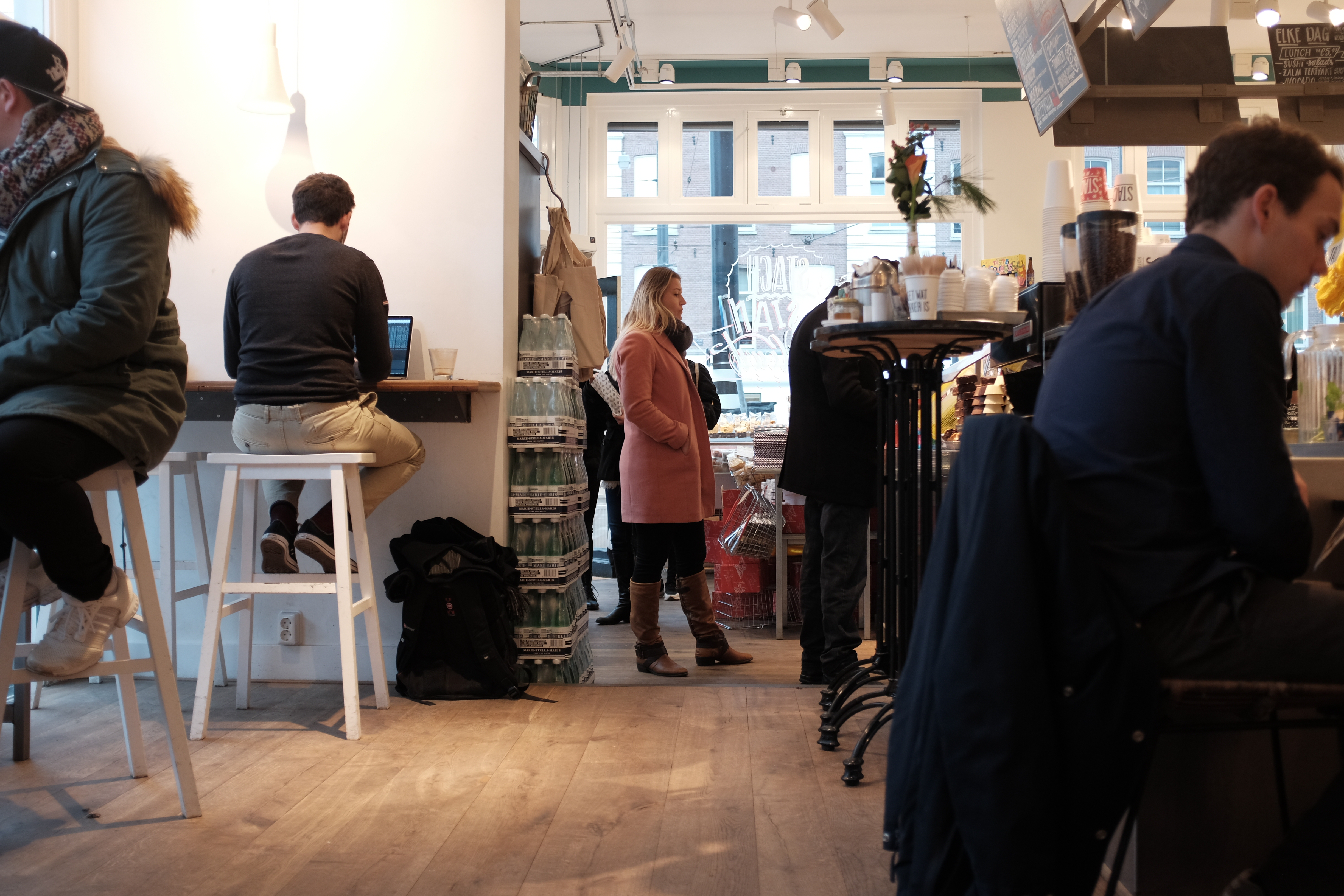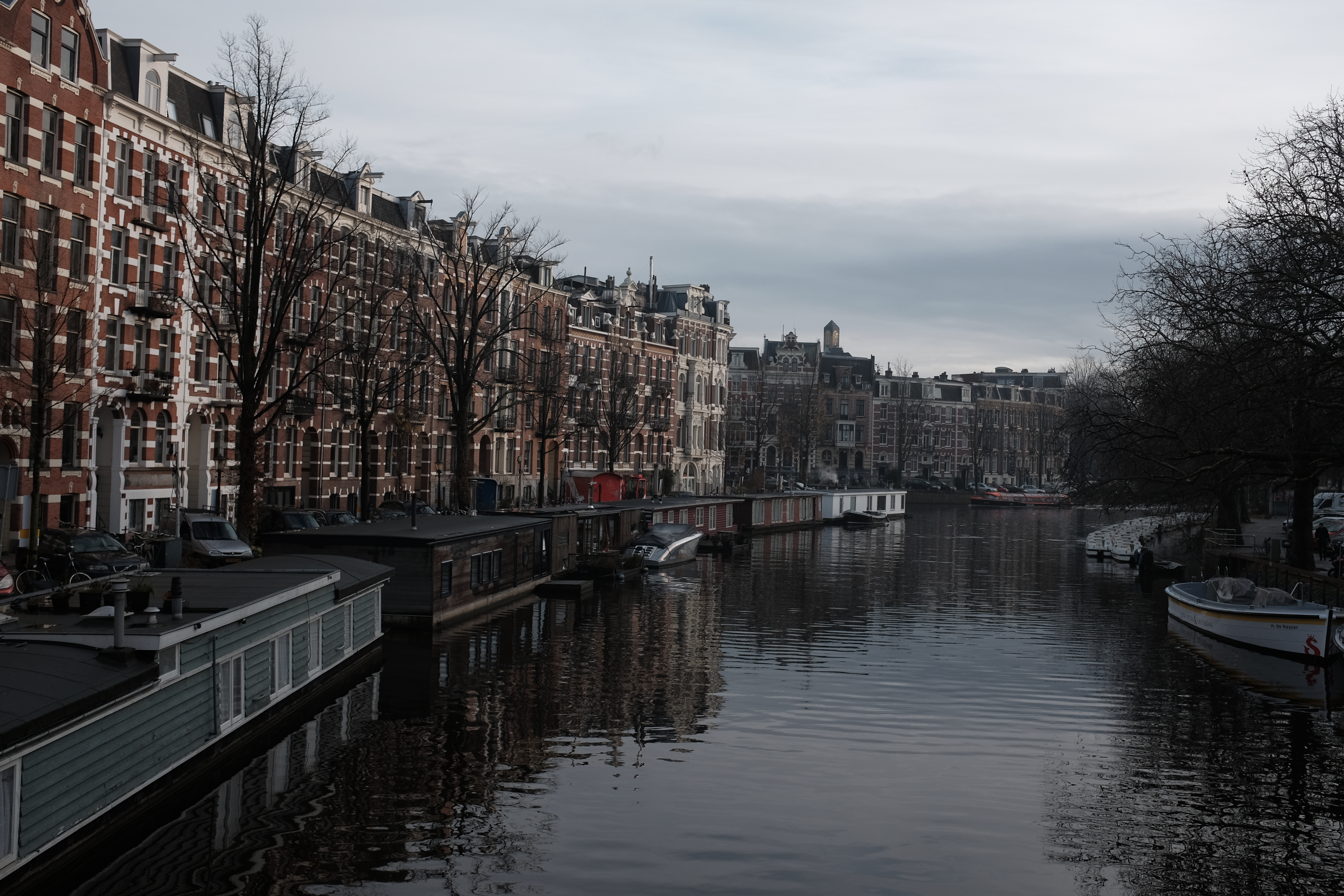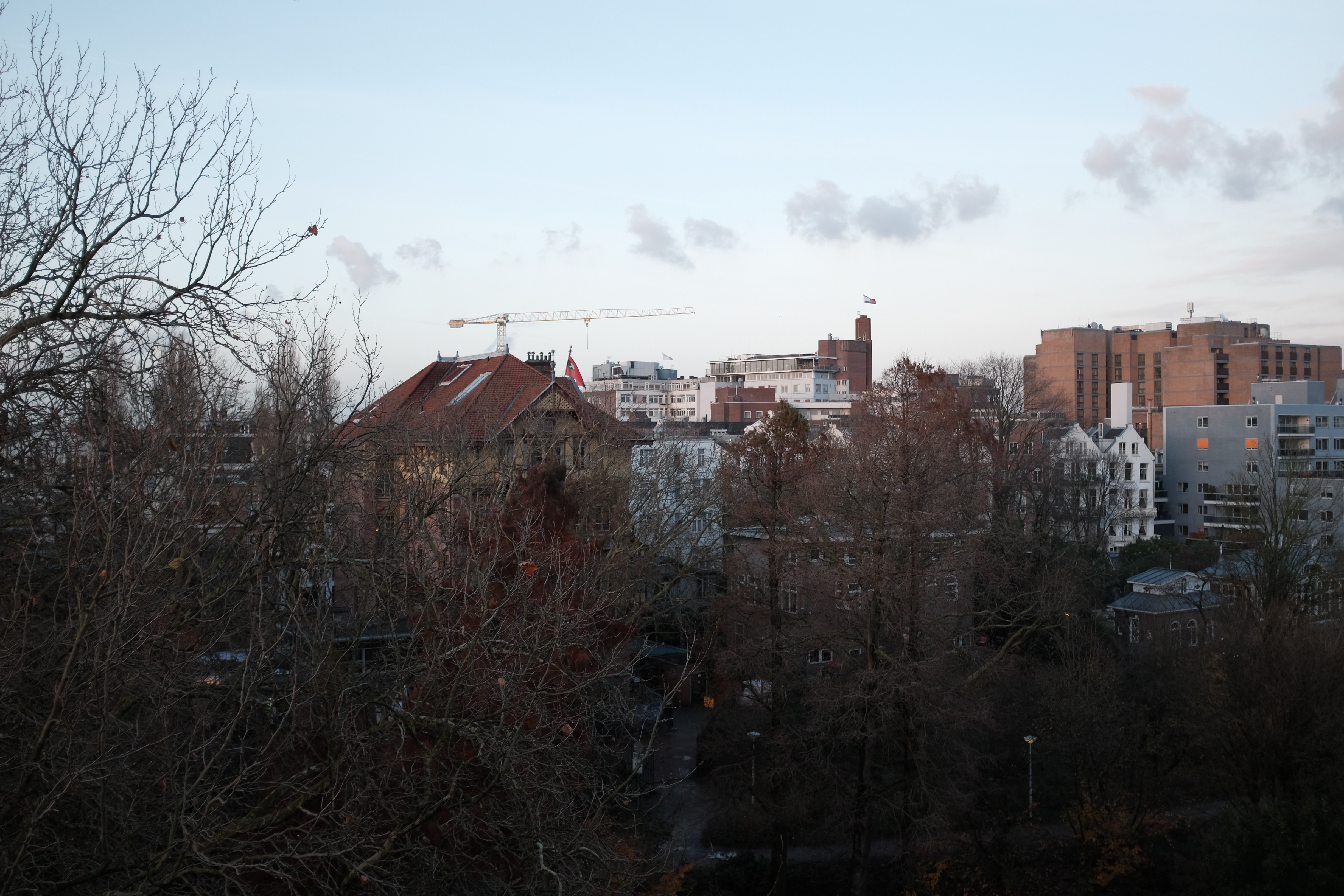
|
Sitting in STACH café near Vondelpark before heading to the airport, I can stop and reflect on an outstandingly personal trip in Amsterdam. It's amazing how much life can be drawn from so short a time. If we can say life flows like a river, then it can flow languidly for months or years only to be punctuated by falls and rapids. Short intense bursts of life that rush by so rapidly but are filled with currents of excitement. Such would describe the past week.
The reason I'd say the trip was so personal is because it was a trip expressing years of self-reflection and growth. Only by being where I am today could I have thought to plan out this weird combination of research and studying abroad. Without any real scaffolding for how I should make it happen, I tried to do something that made sense to me. It's not as if I looked up online a recipe for going to Europe and meeting with people from the art world and technology world to learn about Van Gogh and Deep Learning. Even right now I would say it's difficult to explain concisely why it all makes sense, except that it made sense to me. I didn't have to accept something that fit other people's goals or interests. Considering my own strange amalgamation of interests, most of the time it is difficult finding other people who have much more than a small overlap. I just thought again and again what would be meaningful to do and learn about, and figured out ways to make plans out of that. And even then, Amsterdam ended up providing more than I could've planned for and expected.
The labyrinth of streets interrupted by canals. Cobblestone alleyways framed by buildings tightly packed like crayons in a box. Old Calvinist churches contrasting with the modern liberalism and 'coffee' shops. A few feet below sea level, Amsterdam is a special city. Exploring just by foot I could never run out of things to see and do. On most trips I would probably be shuttling between one amusement and the next hour by hour, trying to get as much 'experience' into my time as possible. But, you know it's funny-- on my own I ended up spending so much time not really doing anything except walking. I ended up lost too many times to count, and without any phone service I had to embrace the special patience necessary to wander without anxiousness.

|
I remember a meeting I had with one of my professors, Dr. Sabharwal, which seems relevant. He explained that I should never see my research as a straight line from point A to point B. It would be good to get from point A to point B, of course, but in my young impatience I shouldn't discount the path in between. He had a picture of a squiggly line going every which way, looping around itself, going back and forward, before finally reaching the end. There would be meandering.
Simply getting lost without cell service reminded me how I needed to be patient and persistent. By trying to rush life, it's very easy to ignore the moments happening right now. My mind might think I want to get to tomorrow, to the next week or the next year. "If only Christmas would come sooner!" It sounds silly, but I really struggle to not try to get to the next thing, and be very content right where I am. Maybe it's a sign of the times, or a byproduct of living in a fast society. Cars have been made to speed up our journeys from one point to another. Our expectation of many modern systems is to hasten our experience to reach the better ones to come.

|
I came to Amsterdam to learn more about the thread count research Dr. Johnson has been working on with the Van Gogh Museum. It is incredible that they would use signal processing to classify the legitimacy of world famous paintings. I had a task in mind, and minimum expectations for success. I could focus on what that meant for a whole week. After my first meeting with Dr. Eric Postma of Tillburg University and JADS, it became clear that would be just the tip of the iceberg, and I would need to be comfortable wandering in my academic exploration too.
At the intersection of cultural heritage and scientific exploration, new ways of understanding history and art have blossomed. (There is far too much to discuss on this subject to go into any further detail and not make this post long as lying Pinocchio's nose. It'll be saved for a different space.) As Teio Meedendorp of the Van Gogh Museum remarked, sometimes you feel like everything there is to know is known on a subject, only to be proven absolutely wrong. Both Mr. Meedendorp and Dr. Ella Hendriks (from the University of Amsterdam) see vast potential for the impacts of digital research on conservation and art history. Understanding the way colors used in paintings fade is perhaps one of the most pressing and interesting questions to answer. It would let museums consider how paintings as living pieces have changed over time. (Van Gogh's "The Bedroom" exemplifies this.) A methodology for automatically processing paintings to present their original color pallets is as yet unsolved.
I wandered a lot this past week. At one point I just walked around the city for a few hours, exploring and thinking, until I arrived back at the place I had started. I spent hours just listening to people talk about their fields and not worrying if our conversation veered vastly away from the path I had planned for it. And in a foreign country across the Atlantic I often did what I do normally: grab a cup of coffee at some coffee house and drink over a good book. I feel incredibly blessed to have been able to meet the people I did, and learn all that I now know. It was a week of a million tiny moments lived without anticipation of the next. Reaching the end of my time here, I wouldn't have changed a thing about it. What great time spent living.